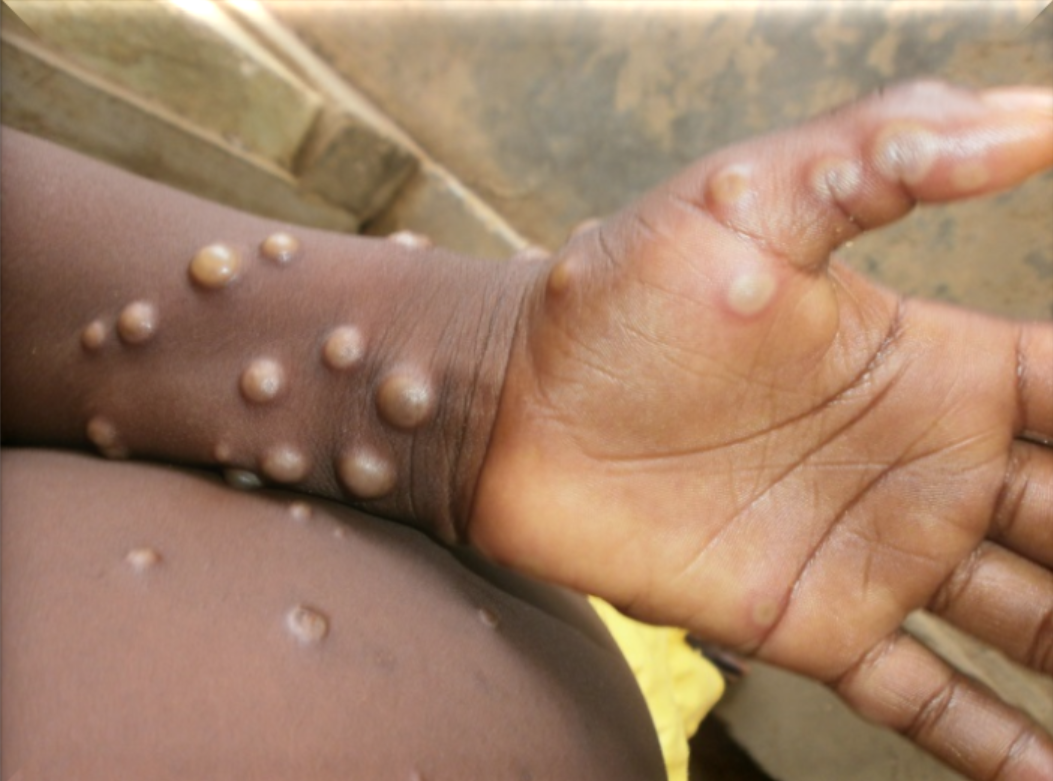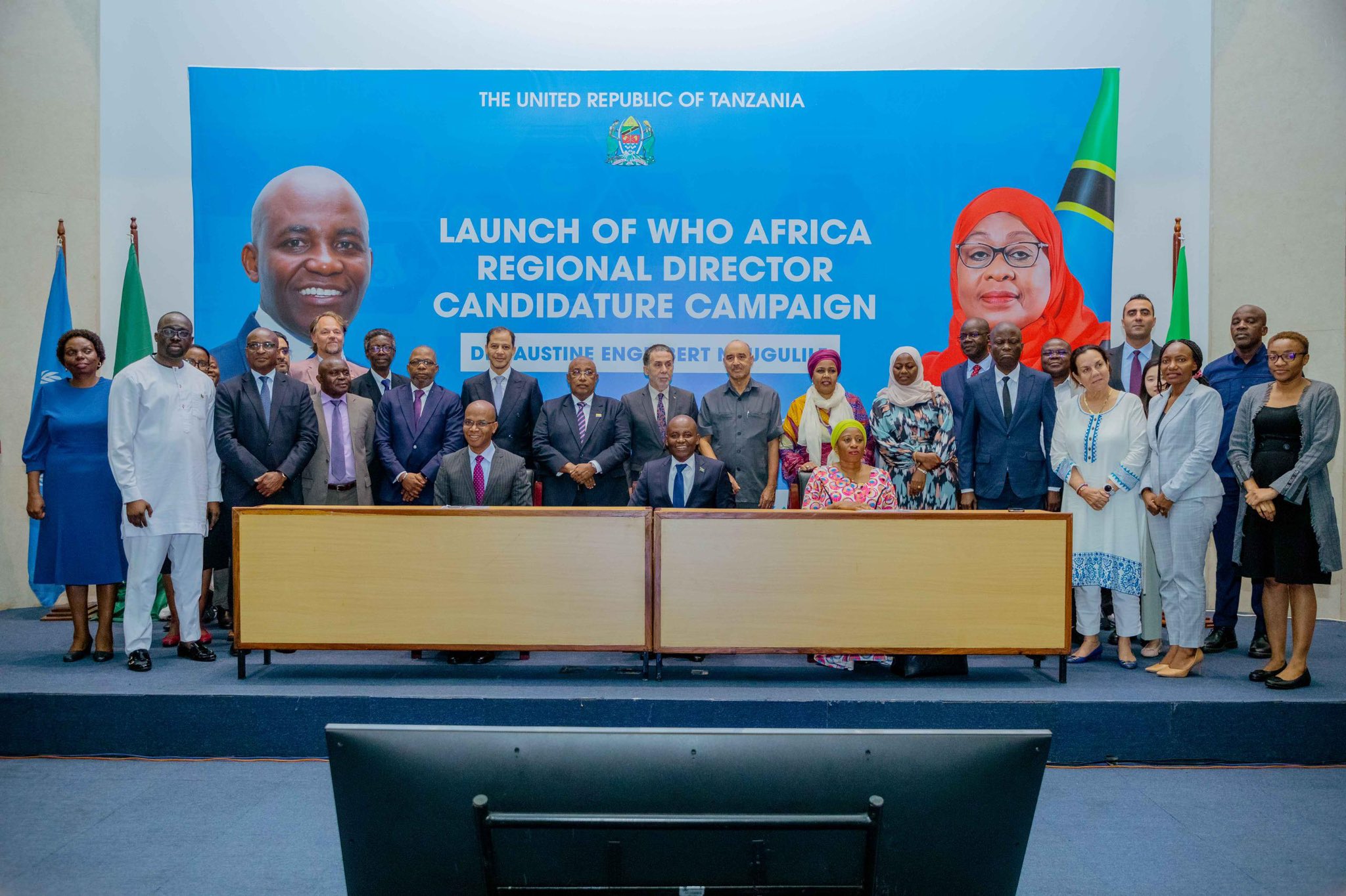Mpox, previously known as Monkeypox, may have been regarded as a distant threat in East Africa but it has cast a long shadow over the region and in Central Africa since an outbreak was reported two days ago in two countries. In the midst of the threat, the Ministry of Health (Tanzania) has called on healthcare workers to adhere to Infection Prevention and Control (IPC) guidelines “at all time when they are attending to patients,’’ underscoring the potential vulnerability of the population but more so of the protectors: healthcare workers.
The disease was first identified by scientists in 1958 during two outbreaks of a “pox-like” disease in research monkeys — hence the name monkeypox. The first known human infection was in 1970, in a 9-year-old boy in a remote part of the Democratic Republic of Congo (DRC). WHO renamed monkeypox as mpox, citing concerns from scientists, mostly in Africa that the “original name of the decades-old animal disease could be construed as discriminatory and racist.”
As a self-precautionary measure, Dr. Norman Jonas, an Internal Medicine resident at Kilimanjaro Christian Medical College (KCM-College), who has consistently been involved in health promotion in times of outbreaks, has alerted healthcare workers to a course offered by World Health Organisation (WHO): Mpox: Introductory course for African outbreak contexts.
In case of an outbreak, healthcare workers are the frontline defenders. While Tanzania has thus far been spared, the disease’s proximity in neighboring countries and the ever-watchful eye on the situation underscores the need to revisit the ‘Health Worker Safety: A Priority for Patient Safety Charter’, adopted in the wake of the COVID-19 pandemic.
The charter still serves as a blueprint for addressing the heightened risks faced by the healthcare professionals, and the stark reality that patient safety is inextricably linked to the safety of those on the frontline when an outbreak could occur. The WHO estimates there are thousands of mpox infections in about a dozen African countries every year. Most cases are said to be in Congo, which reports about 6,000 cases annually, and Nigeria, with about 3,000 cases a year.
While self-learning courses such as the one shared by Dr. Jonas provide healthcare personnel with the necessary skills for prevention and control of mpox, there is still a pressing need to equip healthcare workers with the necessary tools, training, and support. This includes the development of robust policies, comprehensive labor laws, and the consistent supply of sufficient personal protective equipment (PPE). Already, the gaps are apparent in typical African settings, where Tanzania is part.
Research conducted among 200 healthcare personnel in Ethiopia revealed a concerning gap in knowledge and positive attitudes towards monkeypox among healthcare workers. To bridge this divide, comprehensive educational initiatives are crucial. Hospitals should invest in training programs, seminars, and conferences to enhance staff awareness. Incorporating monkeypox into medical curricula is also essential for future healthcare professionals
Monkeypox, with its mode of transmission through direct and indirect contact with infected individuals and their bodily fluids, places healthcare workers in a precarious position. Their roles in managing and treating the disease necessitate close interaction with patients, potentially exposing them to the virus.
According to Africa CDC, mpox has been reported from 13 Africa Union (AU) Member States (MS) as of October 2022 in: Benin, Cameroon, Central African Republic, Congo, Democratic Republic of the Congo, Egypt, Ghana, Liberia, Morocco, Mozambique, Nigeria, Sudan, and South Africa. Prior to 2022, the following 11 countries have historically reported cases of monkeypox: Benin, Cameroon, Central African Republic, Congo, Côte d’Ivoire, DRC, Gabon, Liberia, Nigeria, Sierra Leone and South Sudan.
Strengthening healthcare systems, investing in their preparedness, and empowering them with knowledge and resources are essential steps in safeguarding both healthcare workers and the communities they serve.
So, what are the IPCs that healthcare workers must adhere to?
Africa CDC guidelines show IPC measures to be implemented using the One Health approach, which could help break the chain of transmission of mpox both in community and healthcare settings.
IPC in Community Settings
The following guidelines should be considered and adopted in community settings:
- Persons with suspected/confirmed mpox diagnosis should not leave the home except to seek health care.
- They should avoid contact with wild or domestic animals (if possible)
- Hand washing with soap and water should be performed by infected persons and contacts
- Suspected/confirmed cases of mpox should be isolated in a room from other family members where possible
- Persons with mpox infection should wear a surgical mask (especially those who have respiratory symptoms e.g., cough, shortness of breath, sore throat) where feasible
- Disposable gloves should be worn to avoid direct contact with lesions, and these should be disposed after each use
- Skin lesions should be covered to the best extent possible (e.g., long sleeves, trousers/long pants) to minimise risk of contact with others
- Laundry (e.g., linen and clothing), dishes and all contaminated surfaces may be washed with hot water, detergent, and disinfectant (0.5% sodium hypochlorite solution)
- The importance of hand hygiene using soap and water, or alcohol-based sanitizer should be emphasized.
IPC for Pet Lovers and Owners
- All pet owners should maintain personal hygiene, such as hand washing with soap and water, and report any suspicious animals to the local veterinary authority
- Anyone infected with mpox should avoid contact with animals, especially monkeys, rats, and squirrels
- PPE should be worn by all individuals that care for pets
- Put an end to the use of non-human monkeys in circuses
- Use rodent control measures
Treatment and Care
Many people with monkeypox virus infection have a mild self-limiting disease. There are no specific treatments for monkeypox virus infection currently. However, antivirals developed for the treatment of smallpox may prove to be beneficial against monkeypox. Tecovirimat is approved for the treatment of smallpox in adults and children. It has been shown to decrease the chance of dying, shortens the duration of illness and viral shedding when given in the early course of the disease. Treatment is recommended for people who are severely ill; patients with compromised immune systems like HIV/AIDS patients and people on long term steroids therapy; children, particularly patients younger than 8 years of age; pregnant or breastfeeding women; and people with atopic dermatitis and exfoliative skin conditions. Mental health psychological support services (clinical psychotherapy) should form part of treatment for isolated patients (prior to isolation and during isolation). Assess and monitor for existing mental health ill-health conditions that may worsen during the period of isolation (e.g., anxiety, depression, panic disorders, etc.)
Considerations for special populations People living with HIV
It is currently unknown if HIV increases risk of infection with monkeypox. However, people living with HIV (PLHIV) who are not virally suppressed may be at increased risk of severe morbidity, prolonged illness, and increased mortality. There is no counter-indication for people on pre-exposure prophylaxis who have monkeypox. PLHIV should follow the same recommendations provided in this document to protect themselves from monkeypox. They should also ensure to be adherent to their antiretroviral drug treatment and present for regular follow-ups at their local clinics for continued care.
Vaccination
Vaccination is a known means of prevention against the disease. Africa CDC recommends post- exposure prophylaxis (PEP) with the approved vaccine for all close contacts of a confirmed case. Close contacts include those living in the same household or those who had sex with the case including kissing, hugging and cuddling, sharing of utensils, towels, bedding etc, or came in contact with or touched the rashes on the body of the case3. High-risk populations such as HCWs, immunocompromised individuals and sex workers should also be prioritized for vaccination as mass vaccination is not currently recommended for monkeypox. Two vaccines are available for preventing mpox infection: JYNNEOS (Imvamune or Imvanex) and ACAM2000. JYNNEOS is the preferred vaccine for the current outbreak of mpox. It is a two-dose vaccine series, administered four weeks apart for maximum effectiveness. A vaccine recipient is considered fully vaccinated two weeks after receiving the second dose. The JYNNEOS vaccine does not cause mpox, smallpox, or any significant adverse reaction. Indications for vaccine include known and presume contacts of a case of mpox and queer individuals who have had multiple sexual partners in the last 14 days.







